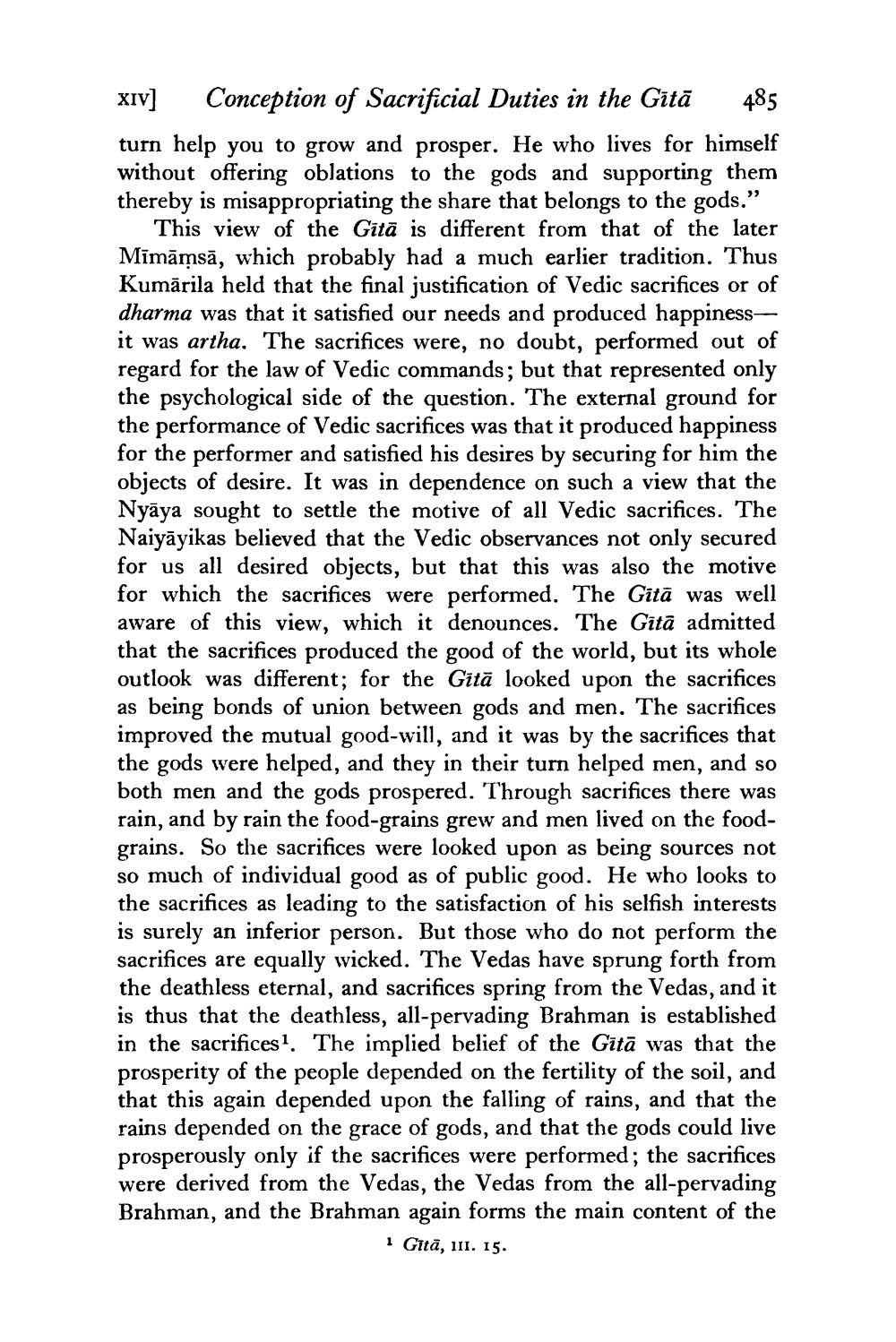________________
XIV]
Conception of Sacrificial Duties in the Gitā 485
turn help you to grow and prosper. He who lives for himself without offering oblations to the gods and supporting them thereby is misappropriating the share that belongs to the gods."
This view of the Gita is different from that of the later Mīmāmsā, which probably had a much earlier tradition. Thus Kumārila held that the final justification of Vedic sacrifices or of dharma was that it satisfied our needs and produced happinessit was artha. The sacrifices were, no doubt, performed out of regard for the law of Vedic commands; but that represented only the psychological side of the question. The external ground for the performance of Vedic sacrifices was that it produced happiness for the performer and satisfied his desires by securing for him the objects of desire. It was in dependence on such a view that the Nyaya sought to settle the motive of all Vedic sacrifices. The Naiyayikas believed that the Vedic observances not only secured for us all desired objects, but that this was also the motive for which the sacrifices were performed. The Gitā was well aware of this view, which it denounces. The Gita admitted that the sacrifices produced the good of the world, but its whole outlook was different; for the Gitā looked upon the sacrifices as being bonds of union between gods and men. The sacrifices improved the mutual good-will, and it was by the sacrifices that the gods were helped, and they in their turn helped men, and so both men and the gods prospered. Through sacrifices there was rain, and by rain the food-grains grew and men lived on the foodgrains. So the sacrifices were looked upon as being sources not so much of individual good as of public good. He who looks to the sacrifices as leading to the satisfaction of his selfish interests is surely an inferior person. But those who do not perform the sacrifices are equally wicked. The Vedas have sprung forth from the deathless eternal, and sacrifices spring from the Vedas, and it is thus that the deathless, all-pervading Brahman is established in the sacrifices1. The implied belief of the Gitā was that the prosperity of the people depended on the fertility of the soil, and that this again depended upon the falling of rains, and that the rains depended on the grace of gods, and that the gods could live prosperously only if the sacrifices were performed; the sacrifices were derived from the Vedas, the Vedas from the all-pervading Brahman, and the Brahman again forms the main content of the
1 Gitä, III. 15.




